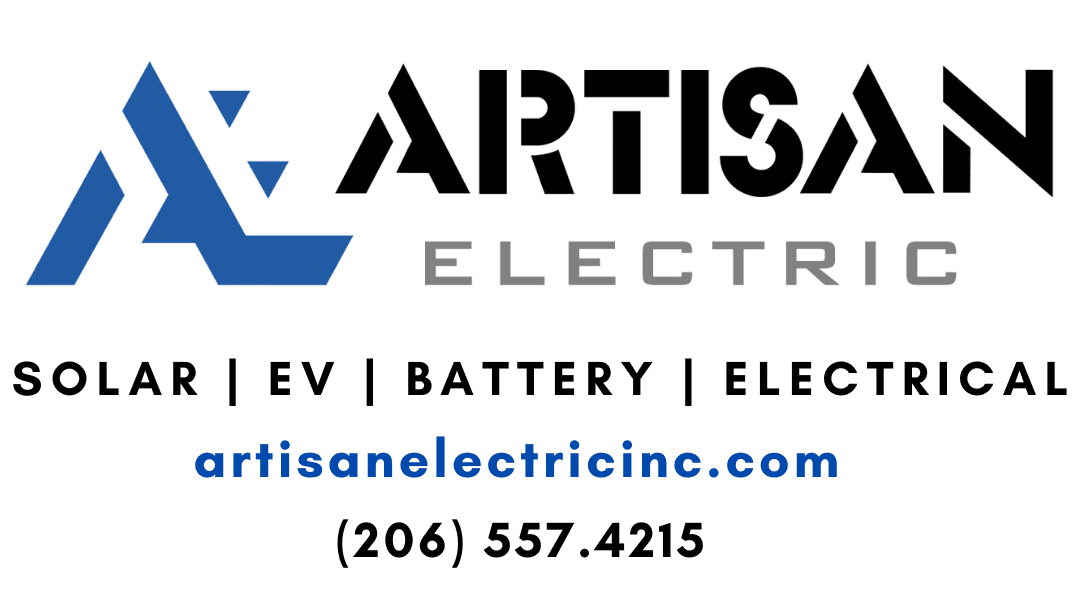
RESIDENTIAL SOLAR INCENTIVES
WASHINGTON STATE SOLAR INCENTIVES
PAY ZERO SALES TAX
As of July 1, 2019 all solar PV systems capable of generating at least 1 kW, but no more than 100 kW, AC of electricity are exempt from Washington State Sales Tax based on the following qualifying activity:
Purchases of machinery and equipment used directly in a solar energy system if both of the following apply:
- The system is capable of generating at least 1 kW, but no more than 100 kW, AC of electricity.
- The machinery and equipment are purchased between July 1, 2019 and Dec. 31, 2029.
Purchases of installation services for qualifying solar systems may also be eligible for the sales tax exemption. Installation must begin on or after July 1, 2019, and be completed by Dec. 31, 2029.
We’ll provide you with the required Buyers Retail Sales Tax Exemption Certification during the administrative part of the project to ensure you take advantage of this additional incentive.
GET A 30% FEDERAL SOLAR TAX CREDIT – INFLATION REDUCTION ACT
The federal residential solar energy credit is a tax credit that can be claimed on federal income taxes for a percentage of the cost of a solar PV system paid for by the taxpayer. The installation of the system must be complete during the tax year and is currently in jeopardy of being eliminated.
As part of the Inflation Reduction Act, in August 2022, Congress passed an extension of the ITC, raising it to 30% for the installation of all solar PV systems installed between 2022-2032. It will decrease to 26% for systems installed in 2033 and to 22% for systems installed in 2034. The tax credit expires starting in 2035 unless Congress renews it. There is no maximum amount that can be claimed.
While the above statement is accurate, new policies currently being considered by the Senate are threatening to eliminate the tax credit as it’s currently written. The solar industry—and millions of American homeowners—are on high alert after a new version of the Senate’s energy reform bill introduced a major change to the 30% Federal Residential Solar Investment Tax Credit (ITC). If passed, the bill would terminate the 30% credit just 180 days after it is signed into law.
NET ENERGY METERING – YOUR SOLAR ENERGY BANK
With net metering, your electric utility becomes your energy bank. A bi-directional meter replaces your existing electricity meter to track the production and use of your home’s energy. When your solar energy system produces more power than you’re using, the excess electricity spins this meter backwards, giving you a dollar-for-dollar utility credit for all the excess energy. At night, when the sun isn’t shining, you make withdrawals from the grid and use the credits you stored earlier in the day. In the summer, when days are long and sunny, most customers produce more energy than they need, building up credits with their utility that are used to offset their usage in the wintertime, when days are short and cloudy.
- In Washington, the net-metering cycle runs annually from March 31st to April 1st of the following year. Credits roll over each month, but do not transfer from one year to the next, so it’s “use it or lose it” after March 31st of each year.
- Because net metering is essentially a “kilowatt exchange program,” your solar becomes more valuable the more energy you use.
- As retail rates for electricity rise, your credits for excess unused power will increase accordingly. Net metering thus helps insulate you from increasing utility rates. For example, if your utility’s rate increases from 10 to 15 cents per kWh, your net metering credit will do so as well.
Currently listed on PSE’s Customer Connected Solar page, Net Metering, as described above, is open to new participants and will remain so through at least December 31, 2025.
UNION DISCOUNT ON RENEWABLE ENERGY SYSTEM

Artisan is a signatory IBEW Local 46 Electrical Contractor dedicated to providing living wages and long-term careers in the energy industry.
In recognition of the contributions workers have made to the strength, prosperity, laws and well-being of the country, we offer a special $500 discount to our union brothers and sisters on any solar pv system. Please let us know at your site evaluation if you or your significant other belong to any unions.
FREE SOLAR SITE SURVEY & SOLAR CONSULTATION
So now that you know how easy it is to go solar, let us perform a quick, free solar site survey at your home or business. Now is truly the best time to take advantage of all available solar incentives before they decrease or end in the future.
By combining all of the above, the initial cost of installing a solar PV system on your home or business can be entirely offset. And thanks to local residential solar financing, no initial out-of-pocket cash is required!
Washington Solar Incentives
Artisan Electric Inc is located on 969 S Nebraska Street Suite A, Seattle. From Seattle-Tacoma International Airport (SEA) head southeast on Airport Expressway toward Departures Dr and keep left. Then continue onto S 182nd St/Arrivals Dr and keep left to continue on S 182nd St/Airport Expressway. Next, use any lane to turn slightly left onto Airport Expressway. Keep right at the fork, follow signs for WA-518 E/Interstate 5/Interstate 405 and merge onto WA-518 E. After that merge onto WA-518 E and use the left lane to take the Interstate 5 N exit toward Seattle. At this point merge onto I-5 N and use the left lane to take exit 162 for Corson Ave toward Michigan St. Finally, use the left lane to merge onto Corson Ave S. Turn left onto S Nebraska St and Artisan Electric Inc will be on your right.
We are open Monday to Friday from 7:30 am – 5:00 pm.
For additional questions, you can call us at (206) 557-4215 or you can find us on Yelp.
